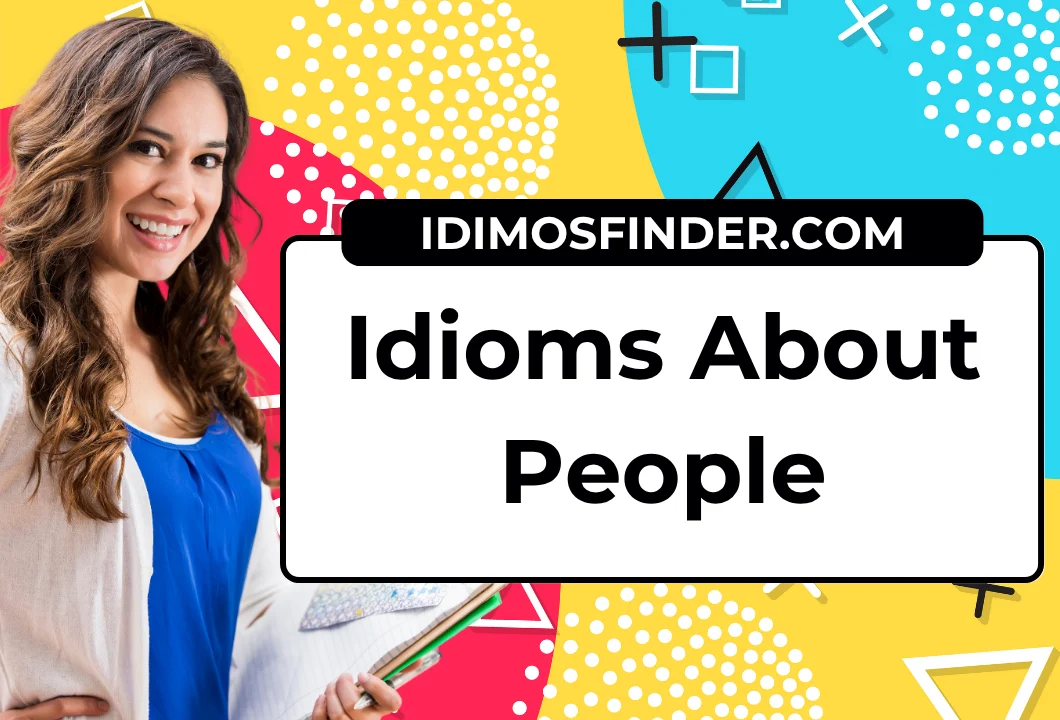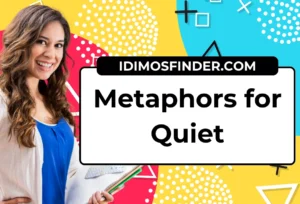When it comes to speaking, writing, or just sharing ideas, idioms are a fun and creative way to describe others with warmth and color. Idioms about people help us express personality, behavior, and even feelings in a short, memorable way. In my years of teaching English and exploring everyday communication, I’ve found that these idioms not only make your language more interesting but also help build stronger connections. So, let’s explore these 25 fascinating expressions together!
1. Armchair Critic
Meaning: Someone who criticizes without doing anything practical.
In a sentence: My uncle is an armchair critic when it comes to politics.
Best use: Use this when you want to describe someone who gives opinions but doesn’t take action.
Other ways to say: Backseat driver, Monday morning quarterback.
2. Couch Potato
Meaning: A person who spends a lot of time sitting and doing nothing active.
In a sentence: After work, I sometimes turn into a couch potato with my favorite shows.
Best use: Great for describing people who love relaxing more than moving around.
Other ways to say: Sloth, lazybones.
3. Big Cheese
Meaning: An important or influential person.
In a sentence: He’s the big cheese at the company.
Best use: Perfect when talking about someone important in a fun way.
Other ways to say: Top dog, head honcho, big shot.
4. Cheapskate
Meaning: Someone who hates spending money.
In a sentence: Don’t be a cheapskate, let’s split the bill!
Best use: Light-hearted way to tease a frugal friend.
Other ways to say: Penny-pincher, tightwad.
5. Down-to-Earth
Meaning: Practical, realistic, and humble.
In a sentence: She’s so down-to-earth despite her fame.
Best use: To praise someone’s personality for being real and relatable.
Other ways to say: Grounded, humble.
6. Go-Getter
Meaning: A person who is ambitious and works hard to achieve things.
In a sentence: He’s a real go-getter, always chasing new goals.
Best use: Encouraging term for someone with drive and energy.
Other ways to say: Hustler, achiever.
7. Busy Bee
Meaning: Someone who is always busy doing things.
In a sentence: You’re such a busy bee, always working on something.
Best use: Nice way to admire someone’s activity.
Other ways to say: Workaholic, beaver.
8. Cold Fish
Meaning: A person who seems unemotional and unfriendly.
In a sentence: He’s a bit of a cold fish at parties.
Best use: Use when describing distant behavior.
Other ways to say: Distant, aloof.
9. Party Animal
Meaning: Someone who loves going to parties and socializing.
In a sentence: She’s a total party animal on weekends.
Best use: Light-hearted way to describe an outgoing personality.
Other ways to say: Social butterfly, extrovert.
10. Black Sheep
Meaning: A family member who is different or an outsider.
In a sentence: He’s the black sheep of the family.
Best use: Talking about someone who doesn’t fit in with the rest.
Other ways to say: Outcast, odd one out.
11. Eager Beaver
Meaning: Someone who is enthusiastic and works very hard.
In a sentence: The new intern is an eager beaver.
Best use: Compliment someone’s willingness to work.
Other ways to say: Enthusiast, keener.
12. Class Clown
Meaning: A student who makes others laugh.
In a sentence: He was the class clown in school.
Best use: Describes a fun-loving, mischievous personality.
Other ways to say: Joker, prankster.
13. Copycat
Meaning: Someone who imitates others.
In a sentence: Stop being a copycat and find your style.
Best use: Use when someone copies ideas.
Other ways to say: Imitator, mimic.
14. Smart Cookie
Meaning: A clever or intelligent person.
In a sentence: You’re a smart cookie, you’ll figure it out.
Best use: Positive way to praise someone’s smarts.
Other ways to say: Bright spark, brainy.
15. Lone Wolf
Meaning: Someone who prefers to act alone.
In a sentence: He’s a lone wolf at work.
Best use: Talking about independent personality.
Other ways to say: Solitary, introvert.
16. Social Butterfly
Meaning: Someone who loves to socialize.
In a sentence: She’s a real social butterfly at events.
Best use: Compliment outgoing, friendly people.
Other ways to say: Extrovert, mingler.
17. Early Bird
Meaning: Someone who wakes up early.
In a sentence: I’m an early bird, I love mornings.
Best use: Positive way to share your routine.
Other ways to say: Morning person.
18. Night Owl
Meaning: A person who stays up late.
In a sentence: He’s a night owl and works best at night.
Best use: Share your sleep habits with others.
Other ways to say: Late-nighter.
19. Old Hand
Meaning: Someone very experienced.
In a sentence: She’s an old hand at marketing.
Best use: Respect someone’s experience and skills.
Other ways to say: Veteran, pro.
20. Wet Blanket
Meaning: A person who spoils the fun.
In a sentence: Don’t be a wet blanket, join the fun!
Best use: Lightly tease a party pooper.
Other ways to say: Killjoy, spoilsport.
21. Jack of All Trades
Meaning: A person who can do many things well.
In a sentence: He’s a jack of all trades around the house.
Best use: Praise someone’s versatility.
Other ways to say: All-rounder, multi-talented.
22. Loose Cannon
Meaning: Someone who is unpredictable.
In a sentence: Watch out, he’s a loose cannon in meetings.
Best use: Caution about someone’s risky behavior.
Other ways to say: Wild card.
23. Tough Cookie
Meaning: A strong, determined person.
In a sentence: She’s a tough cookie, nothing stops her.
Best use: Respect someone’s strength.
Other ways to say: Fighter, resilient.
24. Big Mouth
Meaning: Someone who talks too much or can’t keep secrets.
In a sentence: Don’t tell him, he’s a big mouth.
Best use: Warn others about gossip.
Other ways to say: Blabbermouth.
25. Yes-Man
Meaning: A person who always agrees with the boss.
In a sentence: He’s just a yes-man in the office.
Best use: Talk about someone lacking their own opinion.
Other ways to say: Brown-noser, sycophant.
FAQs
Q1: Why learn idioms about people?
A: They help you sound more natural, creative, and relatable in daily communication.
Q2: How can I practice these idioms?
A: Try using one in your next conversation or in your writing exercises.
Q3: Are these idioms common in everyday English?
A: Yes! They’re very common and make your language more interesting and colorful.
Q4: How do idioms help describe personality?
A: They add warmth and fun ways to express behavior, feelings, and personality traits.
Q5: Can idioms make my English sound more native?
A: Absolutely. Using idioms naturally boosts your speaking and understanding skills.
Conclusion
Learning idioms about people is like adding seasoning to your words — it makes your conversations more flavorful, your writing more lively, and your communication skills stronger. I encourage you to pick your favorite idioms and use them in your daily chats, emails, or even social posts. With practice, you’ll find expressing yourself not just easy but enjoyable, too.
So, next time you want to describe someone, don’t just say it — say it with an idiom! Happy learning and keep exploring the fascinating world of idiomatic expressions.












